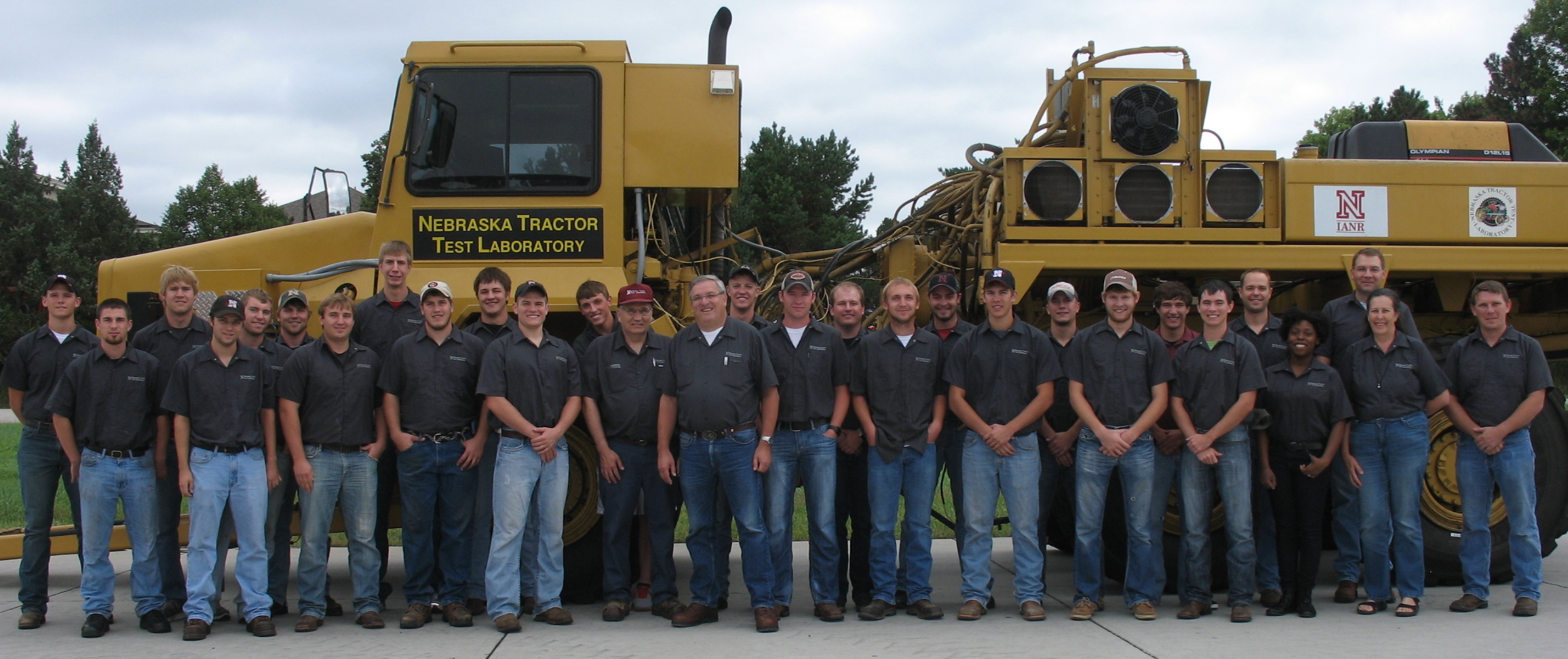Test Engineering
![]()
You can learn to test equipment in the University's unique Nebraska Tractor Test Laboratory, or participate in building the Quarter-scale Tractor for the annual nationwide competition. Students are able to evaluate the functional performance of machines and mechanical systems through the study of test procedure standards, measurements, data acquisition, electronic communication, and statistics.
Students can develop irrigation and drainage systems as well as apply water resources engineering tools to current water management challenges. There are many applications for this career field, and if you want to play a role in improving and protecting our food production and natural resources, this is the field of study for you!
Recommended Classes
Analysis and design of instrumentation and controls for agricultural and biological production, management and processing. Theory of basic sensors and transducers, analog and digital electrical control circuits, and the interfacing of computers with instruments and controls. Emphasis on signal analysis and interpretation for improving system performance.
Engineering design for strength, economy, function and safety of light-frame structures; emphasis on wood, concrete, and steel elements; design project required.
Fundamentals of power systems for machines. Characterization of wastes from animal production. Specification and design of collection, transport, storage, treatment, and land application systems. Air and water pollution, regulatory and management aspects.
Principles and concepts of site-specific management. Evaluation of geographic information systems for crop production practices. Practical experience with hardware and software necessary for successful application of information affecting crop management.
Principles and procedures involved in testing agricultural equipment and tractors. Actual test planned, scheduled, conducted and reported. Test may be based upon procedures used at the Nebraska Tractor Testing Laboratory or involve other equipment being used for research in the department.
For more information, visit the Undergraduate Catalog.
After Graduation
After completing a B.S. in Agricultural Engineering with an emphasis in Test Engineering students will go on to work in animal facilities, geographic informations systems or in a greenhouse environment. Some other possible job focus areas include farm equipment control, processing and global positioning.
Emphasis Areas

Machine Design Engineering
Invent, design, or improve the machines used by agriculture, heavy construction, industry, and households.
Natural Resources and Irrigation Engineering
Design irrigation systems, reduce soil erosion, and apply engineering tools to current water management challenges.
